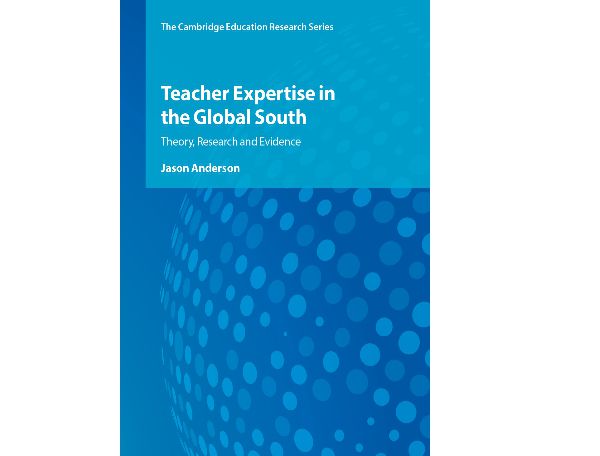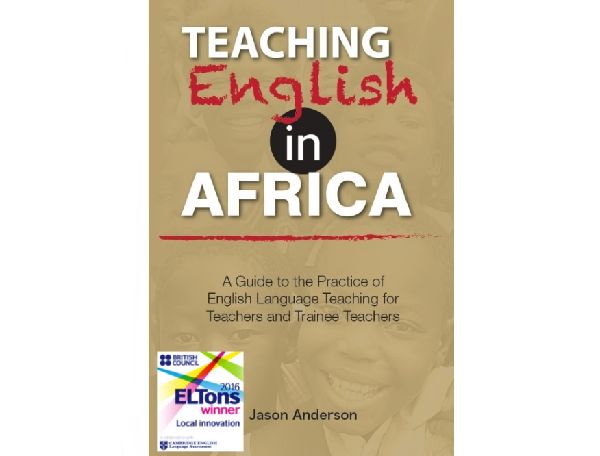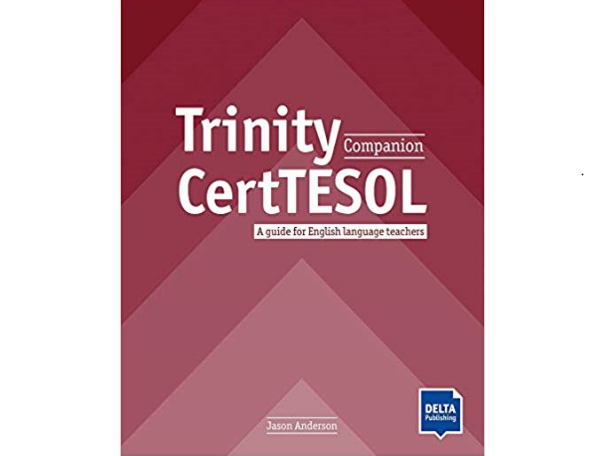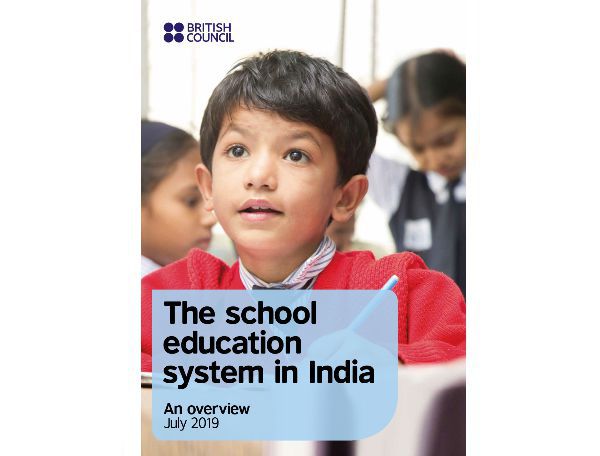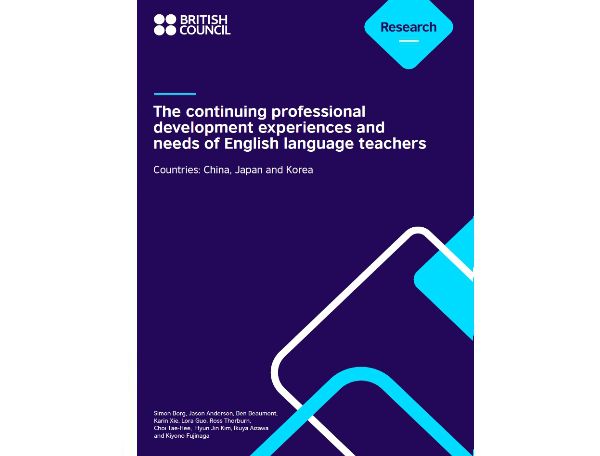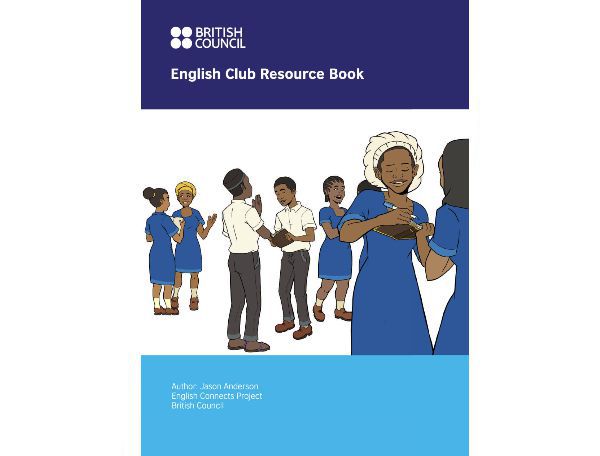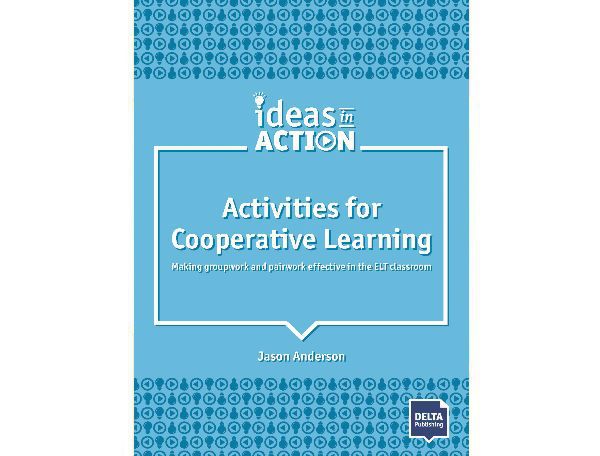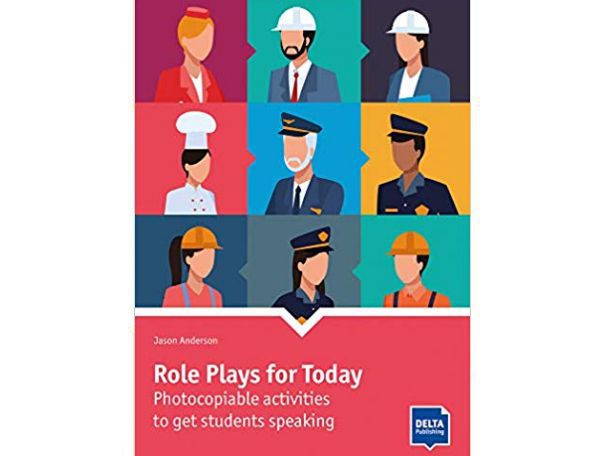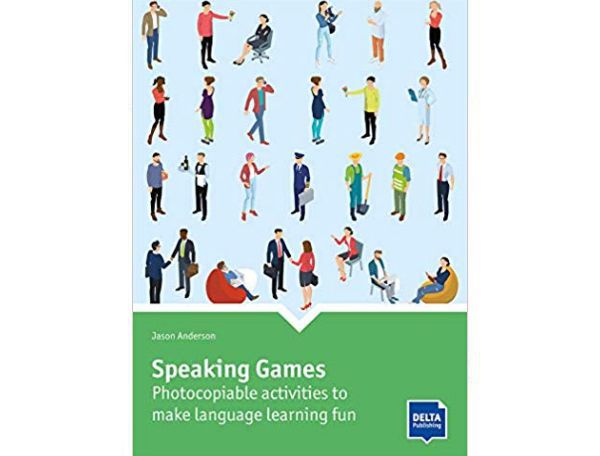The emergence and significance of meta-identity in the professional development of experienced teacher-researchers
Teacher Development - June 2025
Co-authored with Kenan Dikilitaş, Rukiye Eryılmaz, Kuheli Mukherjee and Mariana Serra, this qualitative research study investigates the complex identity transformation that results from sustained engagement in teacher research, to an equilibrium that we coin "meta-identity". In the piece we also propose the notion of data development rather than data collection, appropriate to such complex qualitative enquiry.
Affordance-based lesson planning in pre-service teacher education
ELT Journal - Jan 2025
Co-authored with Elena Ončevska Ager, this article reports on research investigating the feasibility and utility of my earlier affordance-based framework and guidelines for lesson planning (see here) in pre-service teacher education. Findings indicate that pre-service teachers benefit from both outcomes-based and affordance-based planning, albeit for different reasons and to different degrees.
Translanguaging: A view from the South
Linguistic Approaches to Bilingualism - Jan 2025
Co-authored with Suyog Ashokrao Dixit, this article offers a vision of translanguaging as a Southern practical theory of language that has clear implications for the classroom. We argue that only by transcending a code-based theory of language can we correct the frequent social injustices caused by the imposition of Northern-originating language-use policies on communities in the Global South. Download here.
Language teacher expertise research: A theoretical case and research agenda
Language teaching - Jan 2025
This invited, state-of-the-field article makes the theoretical case for more language teacher expertise research. It also discusses key methodological considerations for researching language teacher expertise and suggests six practical, flexible research tasks for the research community. Open access.
Multilingual education and translanguaging pedagogy in Indian classrooms: Discussing applications and challenges with Jason Anderson
Journal of education, language and ideology - Dec 2024
Co-authored with Lina Mukhopadhyay, this article is in the form of a discussion with my co-author on some of the emerging topics, issues and opportunities emerging from recent research into Indian multilingual pedagogy, including my own PhD study and my co-author's research. Open access.
Metasummary: Examining the potential of a methodologically inclusive approach for conducting systematic reviews of educational research
Educational Review - Sep 2024
A critical review of the use of metasummary in education, which unlike meta-analysis or metasynthesis, can include quantitative, qualitative and mixed methods approaches. Evaluates the limited number of educational metasummaries conducted to date, and offers theoretical justification and guidelines for fututre metasummaries in education. Open access.
Teacher research
International Encyclopedia of Language and Linguistics, 3rd Edition (Elsevier) - Aug 2024
A brief introduction to the topic of language teacher research. As well as documenting the 6 key types, I argue for the need for a wider understanding of teacher research that recognise the role of formative assessment and dismisses the assumption that it must be shared for it to constitute research.
The translanguaging practices of expert Indian teachers of English and their learners
Journal of Multilingual and Multicultural Development - Aug 2024
This open access article reports on my participatory comparative case study into expert Indian teachers of English, looking at how they and their learners use language in the classroom. Also offers discussion of multilingual development in Indian contexts and a number of recommendations for policy and practice. Open access (ESRC sponsored).
From “Difficult Circumstances” to the “Global South”: An appraisal of terms used to describe disadvantage in education in the Global South
FORTELL - Jul 2024
This article, co-authored with Santosh Mahapatra, proposes a framework for interpreting terminology to describe disadvantage in education, including terms that have been used in international development, applied linguistics and mainstream education literatures.
Translanguaging: A paradigm shift for ELT theory and practice
ELT Journal - Jan 2024
This article (also here) is my contribution to a Point and Counterpoint feature in ELT Journal, arguing for a motion proposed at the IATEFL 2023 ELT Journal Debate, that translanguaging constitutes a paradigm shift for English language teaching. Both in the IATEFL debate and the Point and Counterpoint feature, the opposing argument was offered by Jeanine Treffers-Daller, who argues in favour of codeswitching theory. Her article is here.
Reimagining educational linguistics: A post-competence perspective
Educational Linguistics - Dec 2023
This article draws upon Bernsteinian theory to critique the neo-Chomskyan competence orientation of educational linguistics as problematic, impoverished and a primary cause of the widely-reported practitioner-research disconnect in applied linguistics. It proposes an alternative continuum framework for the field. Open access.
Teacher Expertise in the global South: Theory, research and evidence
Cambridge University Press - Jun 2023
This book presents extensive evidence to support two key claims, that there are effective teachers working in all educational contexts, even the most challenging in the global South, and that we can learn usefully from who they are, what they do and why they do it; innovations based on, or supported by evidence of expert teacher practices, I argue, are more likely to succeed for reasons of feasibility, appropriacy and sustainability.
TESOL textbook content in the global South: Challenges and opportunities for appropriate and sustainable learning
NISSEM Global Briefs, Vol. 4: Doing more with language teaching - Jun 2023
This contribution to the NISSEM Global Briefs series investigates the content of textbooks used for the teaching of English to speakers of other languages in basic education in the global South, identifying key challenges and affordances, as well as important trends within the sample analysed.
Forty years of research on expert teachers: What we know and why it's important
Modern English Teacher - May 2023
This article summarises important findings from teacher expertise research and argues that this body of work offers a unique opportunity to understand embodied quality in education holistically.
Can teacher case study research be participatory? Critical reflections on the approach adopted for an English language teacher expertise study in India
TESOL Quarterly - Mar 2023
This article reports on my attempt to make a comparative case study 'partially participatory', also reflecting on how and in what contexts such an approach may be of use to other educational researchers. Open access, based on my PhD study at the University of Warwick (ESRC sponsored).
The myth of a theory-practice gap in education
ELT Research - Mar 2023
This article, based on an earlier blog post, argues that the so-called theory-practice divide that exists in ELT and education in general is a myth - a product of the perception of academics who wrongly perceive that they create theory and practitioners consume or implement it.
Translanguaging in the ELT classroom
Modern English Teacher - Mar 2023
This article offers a introduction to the topic of translanguaging for English language teachers, exploring what it means for us as TESOL practitioners and recommending a range of potentially useful activities for translingual teachers of English around the world.
Building the expert teacher prototype: A metasummary of teacher expertise studies in primary and secondary education
Educational Research Review - Feb 2023
Co-authored with Gulden Taner, this is the largest systematic review of research into teacher expertise ever conducted. It reveals 73 features of the 'expert teacher prototype' across 6 domains through innovative use of the metasummary approach for meta-reviews.
Researching and Developing Teacher Expertise in the Global South: Local and Transferable Solutions
(Chapter in) Local Research and Glocal Perspectives in English Language Teaching - Dec 2022
Investigates sustainable means for building locally appropriate understandings of teaching and teacher quality in contexts in the global South, also proposing a framework through which this can be done.
The continuing professional development experiences and needs of English language teachers: China, Japan and Korea
British Council - August 2022
This report was conducted for Trinity College London and the British Council, co-authored with Simon Borg, Ben Beaumont and eight colleagues from China, Japan and South Korea. It documents the self-reported professional development experiences and needs, both online and face-to-face of over 7000 teachers in the three countries.
In need of rebranding: Why we should change terminology from 'young learners' to 'pre-primary', 'primary' and 'secondary learners' of English
Modern English Teacher - July 2022
In this feature article I discuss the history and problematic nature of the ambiguous and inappropriate term 'young learner' in ELT, arguing that we should instead adopt the terms used in mainstream educational contexts around the world; 'pre-primary', 'primary' and 'secondary learners' to recognise the fundamental importance of these different educational contexts.
What’s in a name? Why ‘SLA’ is no longer fit for purpose and the emerging, more equitable alternatives
Language Teaching - June 2022
This Christopher Brumfit Essay Prize-winning article argues that the term ‘second language acquisition’ (SLA) is no longer fit for purpose, insomuch as it misrepresents or excludes the object of research of many academics in the field today. It offers evidence of recent paradigm change and presents the emerging alternative terms that constitute the core of many contemporary definitions of SLA: ‘additional language learning’, and ‘additional language development’.
The translanguaging practices of expert Indian teachers of English and their learners
Journal of Multilingual and Multicultural Development - April 2022
This open access article reports on my participatory comparative case study into expert Indian teachers of English, looking at how they and their learners use language in the classroom. Also offers discussion of multilingual development in Indian contexts and a number of recommendations for policy and practice. Based on data collected during my PhD study. Open access (ESRC sponsored).
Learning from Indian teacher expertise: A policy and practice report for educational organisations in India
University of Warwick - March 2022
This report summarises key findings from my research on teacher expertise in India, also offering recommendations for teacher education, English language curriculum design and education policy for secondary education (ESRC sponsored).
Exploratory survey research
Chapter in: Research methods in language teaching and learning: A practical guide (Dikilitas & Reynolds, Eds.) - March 2022
Co-authored with Amy Lightfoot, this chapter looks at the pros and cons of exploratory survey research, a fast, practical means to find out about a phenomenon from a large number of respondents in comparatively little time using both quantitative and qualitative data collection tooks, drawing on a recent study conducted on the translanguaging practices of Indian teachers of English as an example (see here). Request it on ResearchGate here.
Languages for Learning: A framework for implementing India's multilingual language in education policy
Current Issues in Language Planning - February 2022
Co-authored with Santosh Mahapatra, this paper proposes a framework for multilingual language-in-education policy implementation, offered as a critically constructive response to India’s recent National Education Policy 2020. It offers a potential alternative to the reductive, monolingual construct of 'medium of instruction', a more appropriate framework for ensuring language learning and basic education co-facilitate one another in the classroom, ensuring, as much as possible, inclusivity and equity for all learners in multilingual contexts. Pre-publication version here. Request it on ResearchGate here.
Language teaching in difficult circumstances
Chapter in: Research questions in language education and applied linguistics (Mohebbi & Coombe, Eds.) - December 2021
Co-authored with Amol Padwad and Richard Smith, this chapter stakes out the current state of research into language teaching and teacher education in challenging circumstances, particularly low-income and low-resource contexts across the Global South, offering 10 questions that we feel need to be addressed to further research, as well as recommended reading. Request it on ResearchGate here.
Our English Club resource book: A resource book for teachers working in English Clubs across Africa
British Council - December 2021
British Council publication of materials for teachers working in English Clubs in low-resource contexts. Contributors from 10 countries across Africa (Benin, Cameroon, Cote d’Ivoire, Djibouti, DRC, Gabon, Guinea, Mali, Niger, Senegal), with facilitation and editing support by me.
Eight expert teachers of English: A participatory comparative case study of teacher expertise in the Global South
University of Warwick - September 2021
My PhD thesis. Reports on a comparative case study involving eight secondary teachers of English from across India. Both qualitative and quantitative data were analysed to identify similarities and differences, both among the participant teachers and comparative to the prior literature on teacher expertise, almost all of which involves teachers from the Global North. Implications are discussed (ESRC sponsored).
The book I always refer to: Training foreign language teachers by Michael J Wallace
Modern English Teacher - July 2021
A short article for MET discussing the versatility and usefulness of a classic title in language teacher education, still relevant and useful 30 years after its publication - Wallaces's reflective model has stood the test of time, and now forms the basis for many teacher education courses.
The effective teacher of English: Beliefs of Indian teachers
Teaching English in Multilingual Contexts: Selections from the fifth AINET International Conference, Hyderabad - June 2021
Brief report on my findings from a study of Indian teachers beliefs regarding the effective teacher of English. Also see here for more detailed report on the same study. Full publication available here (ESRC sponsored).
A framework for project-based learning in TESOL
Modern English Teacher - March 2021
In this article I propose a basic framework for project-based learning for ELT including five stages: planning, introducing, working on, presenting and assessing the project. The article also provides a taxonomy of six project types and identifies several important differences to task-based language teaching that may make project-based learning more compatible in mainstream curricular contexts at primary, secondary and tertiary levels.
Using activities effectively
English Teaching Professional - March 2021
This article looks at the role and nature of the activity in learner-centred education (including activity-based, task-based and project-based learning), revealing an important concept - the activity cycle - at the centre of all of these. I argue that effective teaching in a learner-centred classroom depends on our ability not only to select, adapt and evaluate activities, but also on our ability to manage the stages of the activity cycle itself. Guidance for the specific stages of the cycle is also provided. Also see these resources on my website, and this blog post.
The effective teacher of English: An exploratory qualitative study of Indian English teachers’ beliefsEnglish Language Teaching Education and Development (ELTED) - December 2020
This study uses an original, qualitative survey tool to elicit the opinions of teachers in one of India’s largest active English language teacher associations (AINET) regarding the practices, beliefs and characteristics of an effective teacher of English working in an Indian secondary school context, summarised through a "shared beliefs prototype". Open access paper (ESRC sponsored).. �
Nomination
Modern English Teacher - October 2020
In this piece, I explore some of the research on 'nomination'; how teachers select which learner responds during whole-class questioning, and offer my own reflections on which nomination strategies might be most effective for different types of questioning and elicitation.
Key concepts in ELT: Reflection
ELT Journal - August 2020
My invited contribution to the ELT Key concepts series, open access. Provides an overview of teacher reflection, documenting both its history and the tension between Deweyan and Schonian traditions in teacher reflection since the 1980s. It also briefly provides an overview of findings of important research into teacher reflection and documents a number of frameworks for developing teacher reflection that have been proposed.
The TATE model: A curriculum design framework for language teaching
ELT Journal - March 2020
This article begins with a critique of Rod Ellis's recent 'modular language curriculum', proposing an alternative framework for curriculum design that recognises a wider range of considerations for building units of learning. The proposed TATE model (Text, Analysis, Task, Exploration), I argue, provides an integrated skills, multilingual framework that is amenable to shorter (one lesson) and longer (two week) cycles, cognisant of the wide range of needs for language learning programs in mainstream education, including project-based learning, CLIL and text-based language teaching. Part of a Point-Counterpoint discusion piece.
A response to Ellis: The dangers of a narrowly focused SLA canonELT Journal - March 2020
In this final contribution to the Point-Counterpoint discussion with Rod Ellis (see his response to my critique of his framework here), I demonstrate not only that he has misunderstood the TATE framework, but that the evidence he provides to support his argument draws on instructional practices that are consistent with the TATE model. I conclude by suggesting that the TATE model is more appropriate for 21st century language classrooms than those focusing exclusively on the 'acquisition' of morphosyntax for spoken use, as found in Ellis's framework.
Deconstructing jigsaw activities
IATEFL Conference Selections - March 2020
This article reports on my IATEFL talk in which I explored the definition and origins of jigsaw, and how it has evolved as an activity type in language teaching. It also makes a number of proposals for original jigsaw activities, from Activities for Cooperative Learning, and suggests the use of synthesis questions to encourage a wider range of thinking skills and communicative exponents during the communication stage of a jigsaw activity. Also see this earlier article which proposes a taxonomy for jigsaw tasks, and the slides from my IATEFL talk here.
Interactive reflection
English Teaching Professional - March 2020
In this article I share some... reflections on a recent study I conducted (see here) into Donald Schon's construct of reflection-in-action, clearing up misconceptions about what it is, and isn't, and explore the taxonomy of teacher interactive reflection I proposed, and its implications for teacher learning and development.
Making class debates meaningful
Modern English Teacher - March 2020
In this article, I share some ideas and suggestions for effective classroom debates and discussions that avoid annoying dichotomies (you're 'for', and you're 'against', now argue!) and allow learners to explore and compare positions using a 'Cline stand', as I call it. I also suggest five possible stages for debate lessons to ensure that everyone participates, not just the you-know-whos.
Topsy-turvy teacher training: An attempt to blend top-down and bottom-up approaches to in-service language teacher education
The Teacher Trainer - December 2019
This article reports on an in-service teacher training programme conducted in China for tertiary English language teachers from two of the poorest provinces in the country. The programme involved both top-down (traditional training) and bottom up (collaborative and individual teacher research) elements. The article also reports on the findings from a follow-up webinar conducted 6 months later to find out how the teachers had got on since the programme.
Recentering English language teaching: India at the centre of the multilingual turn?
In: ELTAI: An Epic Journey of 50 Years - November 2019
Contribution to the ELTAI anniversary publication, calling for further research into translanguaging and translingual practice in language classrooms in India, and arguing that India can become a centre of multilingual expertise for those of us interested in 'decentring' ELT from the historically monolingual centres of the Anglophone west.
In search of reflection-in-action: An exploratory study of the interactive reflection of four experienced teachersTeaching and Teacher Education - August 2019
This paper reports on a study analysing the interactive reflection of four EFL teachers to empirically examine Schon's concept of reflection-in-action. It provides support for Schon's construct alongside other reflective processes, and proposes an original typology of teacher interactive thought and a taxonomy of interactive reflection. See here for two related resources (the typology of teacher interactive thought, and the proposed taxonomy of interactive reflection) and here for the article.
The School Education System in India: An Overview (co-authored with Amy Lightfoot)British Council India - July 2019
Commissioned by the British Council, this report provides a detailed overview of K-12 education in India, covering early childhood, primary and secondary levels, as well as teacher education, language in education policy and practice, edtech, government initiatives, exam boards, nodal organisations and school ownership and management.
Deconstructing Jigsaw Activities
Modern English Teacher - March 2019
This article presents an original taxonomy for jigsaw activities for language teachers, based on Aronson's original model for the Jigsaw Classroom. It also proposes some new ideas for jigsaw, including grammar jigsaw, flipped jigsaw and research jigsaw. Also see my more detailed blog post on the origins of jigsaw and information gap activities here. Also see my IATEFL Liverpool 2019 talk on the same topic on my Talks page.
Cooperative learning: Principles and practice
English Teaching Professional - March 2019
This main feature article from ETP investigates the origins of cooperative learning, and identifies two core principles shared by writers on cooperative learning. It also looks at its past influence on communicative language teaching (CLT), and asks what it can offer CLT today. Also see my book published 2019 by Delta Publishing: Activities for Cooperative Learning (above).
Translingual practices in English classrooms in India: current perceptions and future possibilities (co-authored with Amy Lightfoot)
International Journal of Bilingual Education and Bilingualism - December 2018
The paper explores the complexity of language use practices in English language classrooms across India, reporting on a survey (quantitative and qualitative) of 169 Indian teachers, and sought to investigate what have traditionally been called ‘L1-use practices’ from a more inclusive, holistic (translingual) perspective. It argues for more explicit treatment of multilingual practices in pre-service English teacher education, and proposes an additional 'inclusive position' to Macaro's 2001 codeswitching model. Blog summary here. Related talk here.
'The future of training' or The elephant that swallowed the room
International House Teacher Training (online) - September 2018
Provides an overview of my data-informed predictions for how 'initial' certification courses in ELT (CELTA, CertTESOL) are likely to change in the near future, and discusses the consequences of this for those who provide such courses, leading ultimately to a need for us to reappraise our role and move from being teacher 'trainers' to teacher educators.
Worth a thousand words
English Teaching Professional - July 2018
Shares a number of suggestions for making the most of Google Images, an online image search function, in the English language classroom for teaching lexis, practising speaking skills and even for teaching grammar.
‘Buying in’ to communicative language teaching: the impact of ‘initial’ certification courses on the classroom practices of experienced teachers of English
Innovation in Language Learning and Teaching - May 2018
Reports on a study into the impact of a Cambridge CELTA course on the beliefs and self-reported classroom practices of 29 experienced teachers of English. Also see my related IATEFL 2018 talk, on YouTube here. Pre-publication version of this paper available here.
The role of initial teacher training courses in the professional development of experienced non-native speaker English language teachers
ELTED - May 2018
Based on my earlier MA study, this paper reports the findings of a study into the role of CELTA and CertTESOL courses in the lives, careers and teaching practices of 19 NNESTs.
Context, analysis, practice: the hidden paradigm in contemporary ELT
IATEFL Conference Selections - April 2018
Describes the lesson planning 'paradigm' I introduced during my talk at IATEFL Glasgow, with example lesson structures from the Trinity CertTESOL Companion.
Reimagining English language learners from a translingual perspective
ELT Journal - January 2018
Reports on a study into the translingual needs of typical 'EFL learners' in the UK, and considers the implications, imagining more L1-inclusive classrooms where translingual practices are recognised as authentic, valid and reflective of language use communities in the wider world. Click the title above for a free link to the OUP article.
Peer Needs Analysis
English Teaching Professional - November 2017
Peer needs analysis aims to turn needs analysis into a social event. Read about how it can improve rapport, fostering patience and understanding between learners and support a negotiated curriculum in the classroom.
Thinking CAP
Modern English Teacher - July 2017
Looks at the history and importance of context in the introduction of new language in ELT classrooms over the last 5 decades, and provides further description of the CAP/CAPE model for structuring new language lessons.
Reimagining English language learners from a translingual perspective
ELT Journal - June 2017 (advance access)
Reports on a study into the translingual needs of typical 'EFL learners' in the UK, and considers the implications, imagining more L1-inclusive classrooms where translingual practices are recognised as authentic, valid and reflective of language use communities in the wider world. Click the title above for a free link to the OUP article.
Under African Skies
EL Gazette - May 2017
An interview I did for EL Gazette on the differences, the challenges and the joys of teaching English in Africa, recalling some of the great teachers and educators I worked with and providing a little advice to those interested in working there.
Context, analysis and practice
IATEFL Voices - May 2017
This article describes and justifies a CAP (context, analysis, practice) model by drawing on research into ELT coursebooks over the last 30 years. It argues that CAP is essentially a hidden paradigm in contemporary ELT.
ELT Journal - April 2017
Investigates the history of PPP to Donn Byrne's and Julian Dakin's work, finding it to be a central construct within the early evolution of CLT, and not a product of audiolingualism as frequently stated. Click the title above for a free link to the OUP article.
IATEFL Teacher Education Newsletter - March 2017
To support my IATEFL talk, in this paper I present a simple 3-stage lesson structuring paradigm; C-A-P (Context, Analysis, Practice) and argue that it better reflects the current emphasis on context in teacher education and coursebooks than alternatives (e.g. PPP, ESA).
ELT Journal - January 2017
A response to May Pang's critique of my 2015 article 'Affordance, learning opportunities and the lesson plan pro forma' outlining the dichotomy underpinning the planning debate in (E)LT methodology. Click the title above for a free link to the OUP article.
British Council Voices - November 2016
Overview article that looks at the challenges and potential paths towards solutions, situating the large class English teacher in their own teaching culture, community and classroom.
King's College London, MA Dissertation - September 2016
This dissertation was a qualitative study asking why experienced non-native speaker teachers choose to take courses such as the Cambridge CELTA and the Trinity CertTESOL, and what impact they have on their practices. It provides an specific recommendations both for course providing organisations and qualification awarding bodies to make the courses more appropriate and useful for experienced non-native speaker participants. It won the British Council ELTon Master's Dissertation Award for 2017.
Education Today - September 2016
Short article written on behalf of VSO, covering the origin and development of Teaching English in Africa. Also
see my blog here.
Initial teacher training courses and non-native speaker teachers.
ELT Journal - July 2016
Reports on a mainly quantitative study indicating that non-native speakers on CELTA and CertTESOL courses have very different prior experience, needs and future teaching contexts to native speakers. Click the title above for a free link to the OUP article.
ELT Education and Development - July 2016
Discusses the history, durability and validity of the PPP model, providing a justification for its use in certain contexts, and an account of its use based on notions of best practice in education.
English Teaching Professional - July 2016
Main feature article. Builds on evidence from mainstream teaching to present a range of suggestions to ensure that learners are aware of both our intentions and their own learning throughout the lesson.
ReadAfricanBooks.com - June 2016
In this online article for ReadAfricanBooks.com, I discuss the important role that local publishing houses have to support teachers in Africa.
Modern English Teacher - April 2016
Internet jigsaws are an effective cooperative learning solution that can be adapted for a wide range of teaching contexts, flipped or not, compatible with most syllabus structures and lesson lengths.
ELT Journal - July 2015
Editor's choice article. Examines the role of the lesson plan template in teacher education and provides recommendation for its improvement. Also
see here for a lesson plan pro forma in line with my proposal, suitable for use on initial and in-service teacher education programmes.
Modern English Teacher - July 2015
Investigates the role of deception in the language classroom and presents both old favourites and new ideas for deception-based games and activities.
English Teaching Professional - January 2015
Main feature article. Presents two types of authentic language use possible in gameplay and contrasts games with tasks, and argues that games can include an explicit focus on language while still retaining authenticity.
